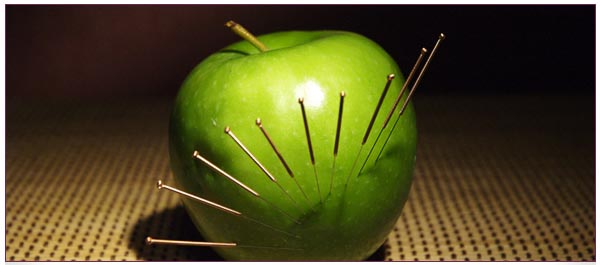Acupuncture consists of the gentle insertion of fine, sterile, disposable needles into strategic points near the surface of the body. These points, which are so effective in treating disease, have been mapped by healers over a period of two thousand years.
How it works:
From a western medicine point of view, acupuncture causes many physiological changes in the body including vasodilatation (increased blood flow) as well as stimulation of the endocrine system and the hypothalamic pituitary axis to balance hormones. Acupuncture invokes an analgesic effect by altering the body’s own natural pain-relieving opiate system allowing the patient to experience less pain as well as deep relaxation.
From an eastern medicine point of view, acupuncture works by stimulating the flow of “Qi” throughout the body. Where there is injury, the Qi or energy of the body gets stuck or becomes deficient. The painless insertion of needles helps bring the body’s attention to the area and resume the free flow of energy.
Qi flows through a system of twelve major pathways or meridians.
Each meridian is connected internally to a specific organ such as the lung, liver, etc. The acupuncture points along these pathways can be used to affect a corresponding internal organ. When Qi in the meridians is balanced, the result is a state of ease and well-being.
When to expect results:
Acupuncture works surprisingly quickly. Most patients experience a great reduction in their symptoms after the first treatment.

